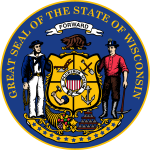| |||||||||||||||||
| |||||||||||||||||
 County results Nelson: 50–60% 60–70% 70–80% 80–90% Petri: 50–60% 60–70% | |||||||||||||||||
| |||||||||||||||||
The 1974 United States Senate election in Wisconsin was held on November 5, 1974. Incumbent Democratic U.S. Senator Gaylord Nelson won re-election to a third term.
| |||||||||||||||||
| |||||||||||||||||
 County results Nelson: 50–60% 60–70% 70–80% 80–90% Petri: 50–60% 60–70% | |||||||||||||||||
| |||||||||||||||||
| Elections in Wisconsin |
|---|
 |
The 1974 United States Senate election in Wisconsin was held on November 5, 1974. Incumbent Democratic U.S. Senator Gaylord Nelson won re-election to a third term.
| Party | Candidate | Votes | % | ±% | |
|---|---|---|---|---|---|
| Democratic | Gaylord Nelson (incumbent) | 740,700 | 61.75% | +0.06% | |
| Republican | Tom Petri | 429,327 | 35.79% | −2.52% | |
| American | Gerald L. McFarren | 24,003 | 2.00% | N/A | |
| Lowering the Property Tax | Roman Blenski | 5,396 | 0.45% | N/A | |